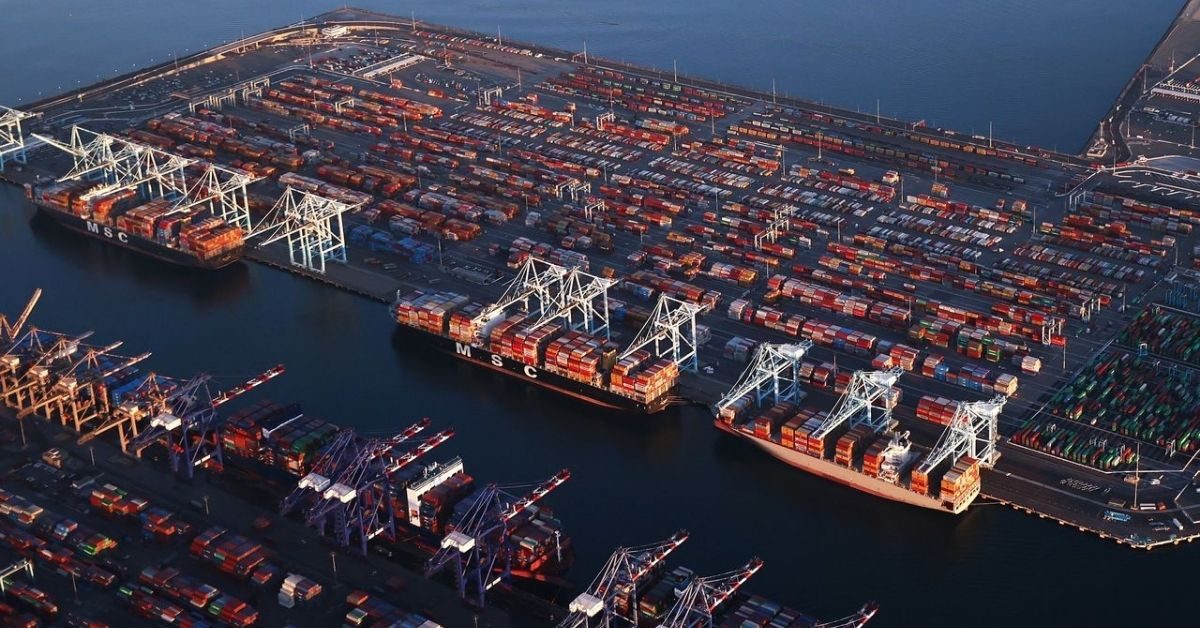With no end in sight to the supply chain crisis and congestion at ports in the US, the Biden administration announced a host of measures meant to ease supply chain bottlenecks at the US cargo ports. These initiatives will provide immediate- and medium-term relief by funnelling billions of Dollars in new grants into modernization and facilities upgrades at key ports across the US.
First, the administration is directing $8 million to build “pop-up” cargo yards at the Port of Savannah. “Under the plan, the Port of Savannah will transfer containers via rail and truck further inland so that they can be closer to their final destination, which will make available valuable real estate closer to the port,” one Biden official revealed. “The effort will free up more dock space and speed goods flow in and out of the Port of Savannah, which leads the nation in containerized agricultural exports.”
Savannah is the No. 3 overall container port by volume in the country, behind the Port of Los Angeles and the Port of Long Beach, and officials estimated the new upgrades will be operational within 30 to 45 days. The administration is also granting the Department of Transportation more than $24 million in new funding for the port and waterway upgrades and allocating more than $7 billion for future upgrades to both critical ports and land points of entry at the northern and southern borders.
The total set of actions include:
- Direct more than $8 million to convert existing inland facilities into five pop-up container yards in both Georgia and North Carolina
- $230 million for DOT’s Port Infrastructure Development Grant program, “the first and only federal grant program wholly dedicated to investments in port infrastructure,” to be allocated within 45 days
- $13 million for DOT’s Marine Highway Program, to be allocated within 45 days
- $4 billion for the US Army Corps of Engineers to launch ports and waterway construction projects, including repairing outdated infrastructure and deepening harbours (60-day launch)
- $3.4 billion in future investments to “upgrade obsolete inspection facilities and allow more efficient international trade” at identified points of entry along the northern and southern borders (60-day launch)
Furthermore, the Transportation Department is developing a new “open source transparent data framework” in partnership with the United States Digital Service and the Federal Maritime Commission “that will help drive goods movement efficiency over the long term.”
“Having that data available and usable by all the participants in the goods movement chain is going to really drive efficiency, lower the cost of movement of goods, and identify the bottlenecks in areas where private and public investment actually makes sense,” an official added. “The data effort has started by basically working among the public and private sector actors, the port community systems that are out there.”
The announcement comes ahead of President Joe Biden’s trip to the Port of Baltimore, where he’ll again tout the passage of his $1.2 trillion bipartisan infrastructure bill. Though he has not yet signed the measure into law, the plan directs $110 billion toward the repair of roads, bridges, and other supply chain-related improvements. The bill also provides $50 billion per year in federal-aid highway funding, which administration officials say “can be used to repair and modernize existing infrastructure to improve the performance of freight corridors.”







